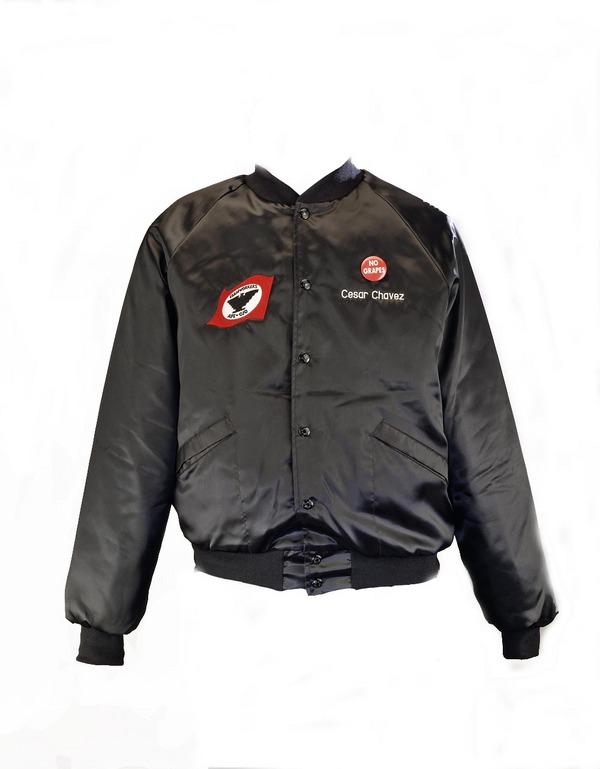Cesar Chavez's Union Jacket
Annotation
Cesar Estrada Chavez spent most of his early life in agricultural, first in Arizona and then California. Dedicated to helping the largely powerless farm workers, Chavez helped organize the United Farm Workers union to fight for agricultural labor reform. In the 1960s, he gained national attention for his use of non-violent tactics—leading a national boycott of California grapes, hunger fasts, and peaceful marches, all seeking support for the union. Shortly after his death in 1993, his wife, Helen Chavez, donated his black nylon union jacket to the National Museum of American History in honor of her late husband. On the left side of the jacket is the eagle emblem, the logo of the United Farm Workers, and Chavez's name is embroidered on the other side. This jacket was one of several made for officers and high-ranking members of the union. The symbol of the UFW eagle has come to represent the solidarity of some of this country's poorest, least powerful workers who stood together to demand better conditions.

Source
Division of Politics and Reform, National Museum of American History.